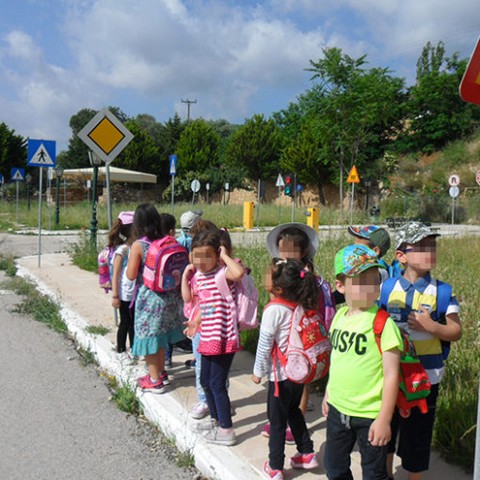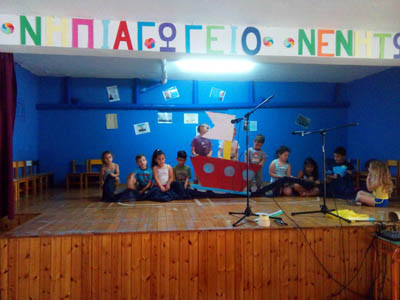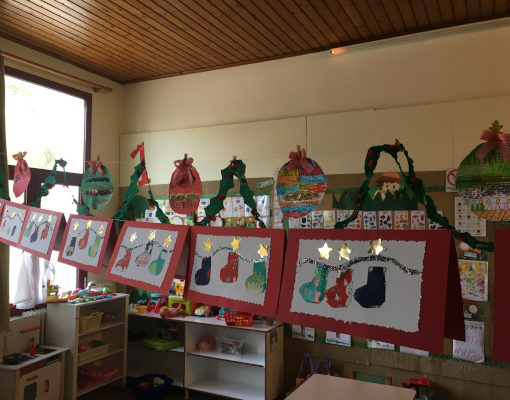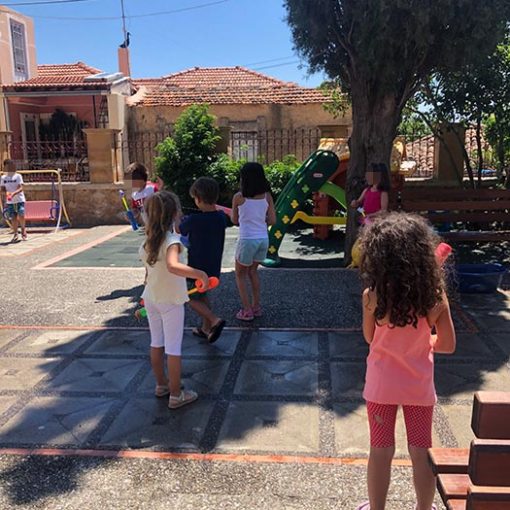As UNICEF says, children and young people have the same general rights as adults but also specific rights that recognize their special needs. Last week, the 3rd Kindergarten of Vrontados learnt about them. During the the whole week, the children learnt about their rights and also about the situation of other kids in the world where those rights are violated.
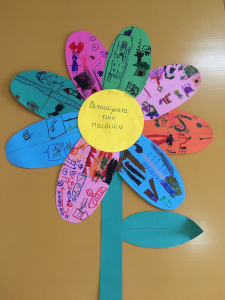
First they learnt about the right number two, the right of no discrimination. They read books about the lifes of children all across the world, from countries like Tanzania, Afghanistan, China, etc… and seeing how even though their lifes were different, they were equals. Secondly, they learnt about the rights number 9 and 20, both concerning the right of having a family. They discussed how their families are and then they learnt that there are some children that don’t have a family and how it’s their right to be looked after by people who will take care properly of them. Later in the week, they learnt about the right number 24, the right of health, water, food and environment. They had to learn how things that they give as normal to have, like water and food, is something hard to get for other children in difficult situations. And finally, they learnt about the right number 28, to which they dedicated most of the time, the right of education.
Every child has the rigth to an education. As I said before, this was the right in which we focused more throughout the week. First, the teacher read some stories about children who can’t go to school or who don’t have the proper means to go to school. After, they were asked what was the favourite thing about going to school, and the answers went from being with their friends, playing with the toys (especially the Playmobiles), drawing art and also being with the ‘Kirias’, the teachers.
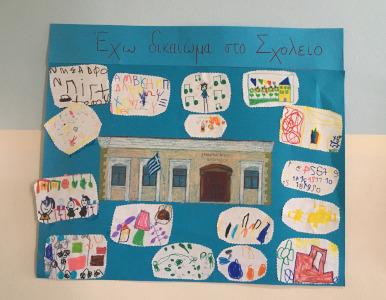
One of the task that I had to do as a volunteer, apart from supporting the daily class and crafts, was to draw our school. I had to do so because of the theme of having the right to an education and the children understanding how important and privileged it is that they are able to go to school everyday. They also had to draw all the things they learnt in school, from the letters, numbers, English, art and music. I was also asked to explain how the schools in Spain work, specially the Kindergarten, which is very similar to here in Greece, but it gave me a chance to speak a little Greek with the children and also integrate my culture into the class, and the kids had many questions, including being surprised by the fact that, as they said, us ‘old people’ also went to the Kindergarten like them in the past.
This was a very important week for them because, even though they are only 5 and 6 years old and many concepts scape from their minds, it was their first contact with the importance of education and going to school and also about the differences and unjustices that children around the world suffer and face every day.

